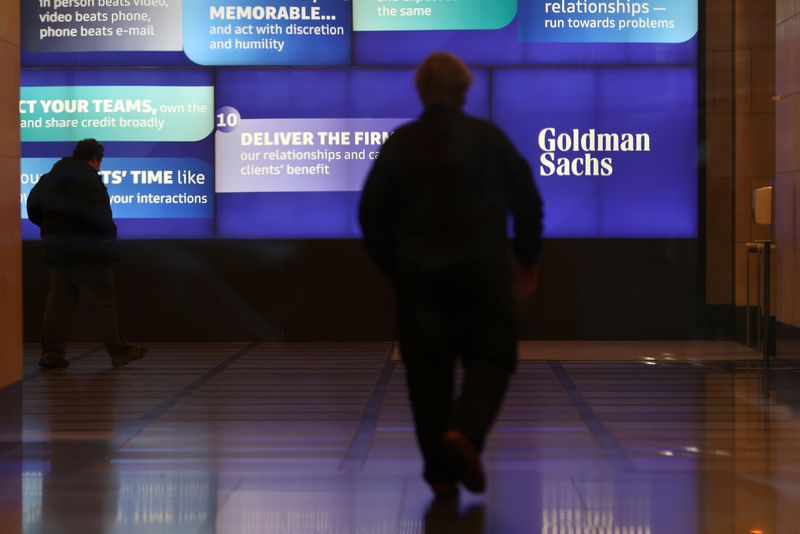By Jody Godoy
(Reuters) -Goldman Sachs shareholders cannot go forward with a class action alleging the bank misled investors about its business practices ahead of the subprime mortgage crisis, a U.S. appeals court ruled on Thursday.
The New York-based 2nd U.S. Circuit Court of Appeals ruled in three pension funds' long-running case accusing the bank of unlawfully hiding conflicts of interest when creating risky subprime securities, costing investors more than $13 billion.
The court said that the bank's statements about its ability to prevent conflicts of interest were not closely linked to Goldman being fined by U.S. authorities in 2010 over marketing materials for a subprime investment product, and therefore did not affect the stock price.
A Goldman Sachs (NYSE:GS) spokesperson said the bank is "gratified by the Second Circuit's decision in this case."
A spokesperson for the law firm representing the investors declined to comment.
The Arkansas Teacher Retirement System and others that purchased Goldman shares between February 2007 and June 2010 accused the company and three former executives of securities fraud.
The investors said the bank's fraudulent statements kept its stock price artificially high.
The plaintiffs said that when they bought Goldman shares they relied upon the bank's statements about its ethical principles and internal controls against conflicts of interest, and its pledge that its "clients' interests always come first."
Goldman argued that these "aspirational" statements were too vague and general to have had any impact on the stock price.
The case stemmed from Goldman's sale of collateralized debt obligations including Abacus 2007 AC-1, which it assembled with help from hedge fund manager John Paulson.
In 2010, Goldman reached a $550 million settlement with the U.S. Securities and Exchange Commission to resolve charges that it cheated Abacus investors by concealing Paulson's role, including how he made a $1 billion profit by betting that the sale of collateralized debt obligations would fail.
The plaintiffs said the share price would have been lower if the truth had been known about the company's conflicts of interest.
On Thursday, applying a 2021 U.S. Supreme Court ruling in the case, the 2nd Circuit found that Goldman successfully showed the statements did not artificially inflate its share price because they were not sufficiently linked to the later disclosures.

Statements such as "integrity and honesty are at the heart of our business" are too generic to have affected the price, the court wrote.
The case is Arkansas Teacher Retirement System et al. v. Goldman Sachs, No. 22-484, 2nd U.S. Circuit Court of Appeals.